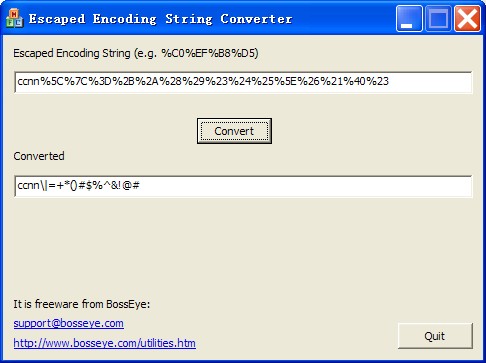Search N5 Net Software Repository:
Search Files
Sponsor:
Browse:
- Audio & Multimedia (3039)
- Business (5565)
- Communications (1642)
- Desktop (531)
- Development (1260)
- Education (505)
- Games & Entertainment (1131)
- Graphic Apps (1290)
- Home & Hobby (269)
- Network & Internet (1005)
- Security & Privacy (1246)
- Servers (129)
- System Utilities (32725)
- Web Development (518)
Areas Of Interest
Authors Area
Are you a software author? Take a look at our Author Resource Center where you will find marketing tools, software specifically created for promoting your software and a ton of other helpful resources.
Escape 5.8.08
Games & Entertainment :: Puzzle & Word Games
Escape is a tile-based puzzle game in the style of "Adventures of Lolo" or "Chip's Challenge." Unlike either of those games, Escape doesn't rely at all on reflexes--it's all about your brain. The game is played on a grid in which the player must manipulate blocks, lasers, switches, and other devices in order to reach the exit. Of course, this is more easily said than done! Although Escape comes with hundreds of levels, the game places an emphasis on the composition of new puzzles. Thus Escape has a built-in level editor and facilities for automatically sharing puzzles with other players.
Specifications:
Version: 5.8.08 |
Download
|
Similar Products:
URL ESCAPED ENCODING DECODER 1.0
Development :: Compilers & Interpreters
 It is used to decode the Escaped-encoding URL. Escaped-encoding is the standard of representing characters within a URI that may need special syntax handling to be correctly interpreted. It uses a sequence of three characters to encode the character to be interpreted. This triplet sequence consists of the percentage character ?%? followed by the two hexadecimal digits representing the octet code of the original character.
It is used to decode the Escaped-encoding URL. Escaped-encoding is the standard of representing characters within a URI that may need special syntax handling to be correctly interpreted. It uses a sequence of three characters to encode the character to be interpreted. This triplet sequence consists of the percentage character ?%? followed by the two hexadecimal digits representing the octet code of the original character.
Windows | Freeware
Read More




